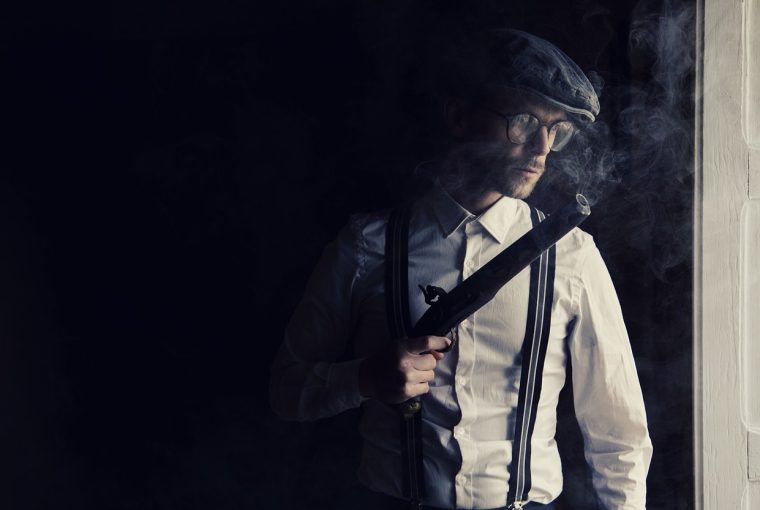Hey there, history buff! Today, we’re taking a captivating journey through the twists and turns of the Italian Mafia’s historical evolution. From its mysterious origins to the intricate dynamics of modern-day leadership, buckle up for a riveting exploration into the roots and branches of one of the world’s most notorious criminal organizations.
Shadows of Origins: The Birth of the Italian Mafia
Let’s step back in time and unravel the enigmatic origins of the Italian Mafia. Born in the shadows of Sicily in the late 19th century, this clandestine network initially emerged as a response to social and economic unrest. You see, life was tough, and communities sought their own form of justice and protection outside the conventional legal system.
As you delve into the past, tales of secret societies and clandestine meetings paint a picture of the Mafia’s early days. It wasn’t just about crime; it was a complex web of loyalty, honor, and a code of silence that would shape the organization’s identity for generations to come.
Rise of the Dons: Mafia’s Ascension to Power
Fast forward to the early 20th century, and you witness the rise of the Dons, the charismatic and cunning leaders who steered the Mafia into a position of power. These figures, with names like Al Capone and Lucky Luciano, became household names, synonymous with organized crime and the lavish lifestyle that came with it.
The Mafia’s expansion across the Atlantic to the United States played a pivotal role in its evolution. As you explore this era, you’ll find tales of Prohibition, speakeasies, and Clevescene’s article highlighting the tumultuous relationship between the Mafia and law enforcement. The rise of the Dons marked a turning point, solidifying the Mafia’s influence on both sides of the ocean.
Modern Machinations: Navigating the Complex Leadership Landscape
The Italian Mafia has undergone significant transformations in the contemporary landscape, adapting to new challenges and law enforcement tactics. The modern-day leadership structure is a complex web of alliances, rivalries, and strategic maneuvering. Today’s Dons may not wear pinstripe suits and fedoras, but their influence remains potent.
Clevescene’s article sheds light on the ongoing efforts to dismantle the Mafia’s leadership structures. The game has changed from RICO prosecutions to technological advancements aiding law enforcement, but the stakes are as high as ever. As you navigate through the intricacies of the present, you’ll discover how the Italian Mafia continues to evolve, leaving an indelible mark on history.
And there you have it, a whirlwind tour through the historical evolution of the Italian Mafia. From its humble origins to the intricate power plays of modern-day leadership, the saga continues. As you reflect on this journey, remember that the story is far from over. The Italian Mafia’s history is a living narrative, shaped by the past but constantly evolving in the present. Stay tuned for the next chapter in this compelling tale of crime, power, and the pursuit of justice.
The Underworld’s Influence: Mafia’s Impact on Italian Society
Dive into the intricate web of the Italian Mafia’s influence on society, and you’ll find a story that goes beyond crime syndicates and illicit activities. The Mafia’s impact reaches deep into the fabric of Italian culture, politics, and daily life. It’s not just about criminal enterprises; it’s about power dynamics, societal norms, and the subtle ways in which the underworld has woven itself into the tapestry of Italian society.
As you navigate through the historical timeline, you’ll discover instances where the Mafia’s influence seeped into various sectors. From local businesses coerced into paying protection money to the intricate relationships between crime bosses and politicians, the symbiotic dance between the underworld and the mainstream is both fascinating and unsettling. Clevescene’s article might shed light on specific instances where this influence became glaringly apparent, providing a window into the complex relationship between the Mafia and the Italian people.
The Changing Face of Mafia: Women in Organized Crime
Traditionally viewed as a male-dominated realm, the Mafia has undergone a significant shift with the emergence of women in organized crime. Breaking free from stereotypical roles, women are now playing pivotal roles within Mafia families, challenging preconceived notions and contributing to the evolution of these criminal organizations.
In this era of shifting gender dynamics, the Mafia’s power structure is no exception. Clevescene’s article may touch upon the stories of women who’ve risen through the ranks, taking on roles once reserved for their male counterparts. Whether it’s navigating family dynamics, participating in criminal enterprises, or influencing strategic decisions, women in organized crime are reshaping the narrative of the Mafia’s leadership.
Globalization and the Mafia: Expanding Territories
The Italian Mafia’s influence isn’t confined to the narrow streets of Sicily or the bustling neighborhoods of New York. With the advent of globalization, organized crime has expanded its territories, reaching far beyond traditional strongholds. The Mafia’s tentacles now stretch across continents, infiltrating businesses, financial institutions, and even legitimate enterprises.
Clevescene’s article might explore how the globalization of the Mafia has blurred the lines between national and international crime. As you delve into this aspect, you’ll find stories of money laundering, drug trafficking, and the intricate networks that span the globe. The Mafia’s ability to adapt to the changing landscape of a globalized world presents new challenges for law enforcement and illustrates how crime syndicates evolve to exploit opportunities on a worldwide scale.
- Online casino’s safeguards against crime - January 8, 2025
- The Best Slot Games For Low-Budget Play - December 14, 2024
- From Mob Mentality to Digital Thrills - December 10, 2024








